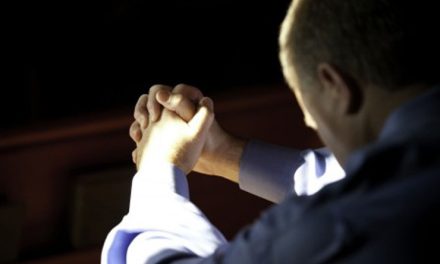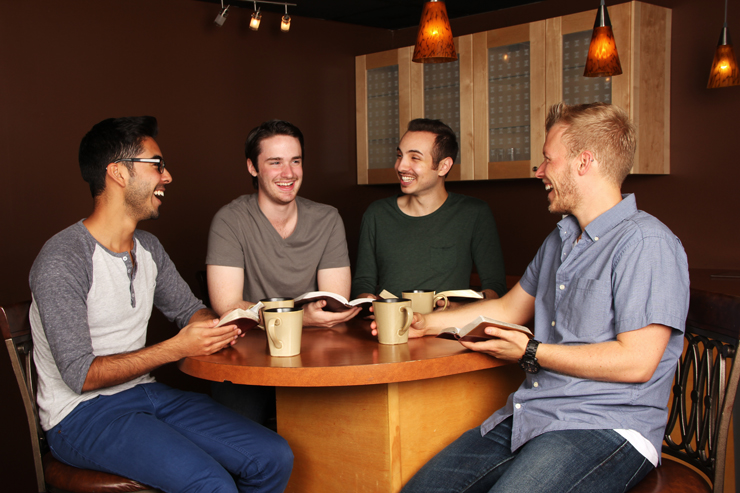I grew up in a home where both my parents worked to make ends meet. There were years that my dad worked two jobs to help support our family. We had few extras, but we had what we needed. If I wanted spending money I worked a number of jobs to earn it. What our family did have in abundance was love, encouragement, and a focus on the importance of values. My parents always made time for my sister and me, and family dinner time was sacred. They were genuinely interested in what we were doing at school. As tired as my father was after work, he would play catch with me every evening and on weekends. My mother was our emotional bedrock and I always admired what a great team she and my father formed. We had rules in our house and I knew the boundaries that I could not cross. Faith was very important to my parents and church and prayer were staples in our household. My childhood was by no means perfect, but I am grateful for my experience and how it has shaped me today.
I suspect that many of us have similar fond memories and “Norman Rockwell moments” in our past. I would suggest that a bond that connects most of our various childhood experiences is simplicity. We didn’t have as many distractions. Technology was still under our control (versus the pervasive influence it has on us today) and values and character still mattered. You probably found fewer obstacles back then to your relationship with Christ. I am a realist in my forties and understand very well the technology-driven world in which we live, but as I grow older I am hardening against a neo-modernist “everything goes” version of the future and looking more to the lessons of the past for guidance.
I am increasingly alarmed by the obsession and addiction to consumerism and materialism that seems to drive so many families today. The media and retail advertisers have insinuated themselves into every electronic device or print product we own, use, and see every day. We have been sold for decades on the idea of a lifestyle that is filled with fun, convenience and, dare I say, guilt, if we don’t pursue this artificial paradise. The push is to buy, buy, buy, and then buy some more!
The focus on acquiring material goods drives many of us to work harder and harder to make more money to buy bigger houses, nicer cars, and cooler gadgets. This obsession often pulls both parents into the work force to support their lifestyle, keep up with the neighbors, or satisfy some deep inner emptiness. There is nothing wrong with a nice lifestyle, but how much is enough? And more importantly, can we take it with us at the end of our lives?
In Matthew 6:19–21 our Lord said, “Do not lay up for yourselves treasures on earth, where moth and rust consume and where thieves break in and steal. But store up treasures in heaven, where neither moth nor decay destroys, nor thieves break in and steal. . . . For where your treasure is, there will your heart be also.” This clear direction from Jesus means we need to take better inventory of our lives. We need to make sure that God is not just one of our priorities, but instead He must be the top priority. Jesus again addressed this subject in Matthew 6:24, 33–34: “No one can serve two masters; for either he will hate the one and love the other, or he will be devoted to the one and despise the other. You cannot serve God and mammon. . . . But seek first his kingdom (of God) and his righteousness, and all these things shall be yours as well. Do not be anxious about tomorrow; tomorrow will be anxious for itself. Let the day’s own trouble be sufficient for the day.”
This focus on acquiring the things of this world takes our focus away from God. Again, please don’t misunderstand me. Supporting ourselves and our family comfortably is not in itself wrong. I am talking about the excessive pursuit of material goods that takes our focus away from Him. There is a word that squarely addresses this problem: detachment. As Francis Fernandez wrote in his excellent book series, In Conversation with God: “Effective detachment from things demands sacrifice. Any detachment which is not hard is not real. Christian life is such that it calls for a radical change in attitude towards earthly goods. We must acquire them and use them not as an end to themselves, but as a means of serving God, the family and society. The objective of a Christian is not to accumulate more and more but to love Christ more and more through his work and his family as well as through material goods” (Vol. 3, 109–110).
Think about the key words we place before the material things we desire during the course of a day: “I want,” “I need,” or “I love.” Now, replace these material things with Christ and use the same key words. We should all want, need, and love Christ, and our thoughts should always be of Him.
Seeking more insight into the need for “detachment,” I sought out the input from a man who left behind what the world holds most dear in order to fully serve God and the Church is Tom Peterson, president and founder of Catholics Come Home. Following twenty-five years as an award-winning advertising executive, Tom Peterson’s life would radically change forever after receiving a transforming spiritual conversion while on a Catholic men’s retreat. Soon afterward he founded VirtueMedia (pro-life) and CatholicsComeHome.org. In the first six years, Catholics Come Home has aired Catholic evangelization commercials in thirty-six dioceses and nationally, helping lead nearly five hundred thousand souls home to the Catholic Church. Tom is also the author of Catholics Come Home: God’s Extraordinary Plan for Your Life and the creator of the original EWTN TV series, Catholics Come Home. Tom is passionate about our Catholic faith and devoted to his wife, three daughters, and first grandson.
Tom, I have long appreciated the story of your faith journey and the reconversion to the Catholic Church you experienced many years ago. One aspect of your story that has always intrigued me was your decision to downsize and simplify your life and shed what you described as your “idols.” Can you elaborate?
“Absolutely! When many of us think of the word idol, we may think of a statue of a pagan god. That’s accurate, but idols also take the form of career, money, beauty, a large home, a nice car, exotic vacations, or even the admiration of our friends and peers. The Church teaches that even if one of these things takes primacy in our lives, then we are worshipping an idol.
“This observation comes from my own experience as well because there was a period in my life which was filled with idols. God was relegated to a small corner of my heart as I pursued a lifestyle and lived a life devoid of the things which truly matter. It took time, but I began to realize that these worldly idols had to vanish for God to be first in my life. That decision and the painful process that followed has made all the difference for me and my family, and I am truly blessed to have been given a second chance and to have experienced God’s love and mercy.”
Do you see our Catholic men and women of today experiencing the same issues with idols and the right priorities?
“I do, and it is getting worse. I think we need to start by recognizing that God wants us to be happy, truly happy. He is our loving heavenly Father and He made us for a great purpose. He wants to reveal His love to us and have that love with everyone we encounter. But there are obstacles that keep us from doing this. We are working harder and longer to buy things which do not make us happy. We are often trying to maintain a lifestyle that requires both husband and wife to work full time, instead of more modest lifestyle which allows for a happy and well-adjusted family focused on loving and serving God.
“This is not only about lifestyle, but also about how we are living. Society is demanding more and more from our young people and the competition factor can be overwhelming for our kids. Many families I know are racing from sporting event to recitals to various other activities without making time to just be together. We have forgotten how to relax and hang out in each other’s company. Families need to pray together and go to Mass together and do Eucharistic Adoration together. They can and should serve the least of our brothers and sisters in the community. So, chasing idols and the wrong priorities are hurting so many families today, and Catholic men must rise to the challenge of saying no when appropriate and being leaders in their homes.”
Tom, I know your walk back to a fully active practice of your Catholic faith and your roles as founder of Catholics Come Home and Virtue Media were greatly aided by prayer and the Sacrament of Reconciliation. Can you share how these catalysts helped you?
“Without prayer we cease to communicate with God. We simply can’t know His will without an active prayer life throughout every day. Reconciliation is the most underutilized sacrament in the Church, yet provides us with sacramental graces and forgiveness to start fresh and begin anew. God is merciful and wants to shower us with His love, yet we need to accept His gift. If you haven’t been to Confession in the last two months, make the commitment to go this week. It changed my life and countless others and will bless you and your family too.”
Tom, one last question. When you think about how much of your energy and time was devoted to supporting a materialistic worldly lifestyle years ago versus the way you spend your energy and time today, can you describe in simple terms the difference in your life, your family’s life, and the lives of those you encounter each day?
“When we take the focus off ourselves and focus on God’s will for our life, we begin to experience the adventure of the new evangelization—God’s true plan and purpose for each of our lives. Nothing will make us happier or more fulfilled than doing and living God’s perfect will. He customizes this for each of us. With a sincere heart, ask the Holy Spirit to guide your path, live the Commandments, pray and help others, and watch the miracles begin!”
As we venture out into the world today, let’s be thoughtful about our priorities. Is Christ truly first in our lives? If not, what is getting between us and Him? I challenge all of us to reflect and pray about the unhealthy attachments we may have formed over the years and ask ourselves if we really and truly need “it”, whatever “it” is. If there is something negatively affecting our relationship with Him and a deeper practice of our Catholic faith, it is time to let it go.
Editor’s Note: Would you like to learn more about “regular Catholic heroes” and the joyful witness they give for Christ and the Catholic faith? Pre-order Randy Hain’s exciting sixth book, Joyful Witness: How to Be an Extraordinary Catholic (Servant Books) which will be available through Amazon and Catholic bookstores on November 21st, 2014.














